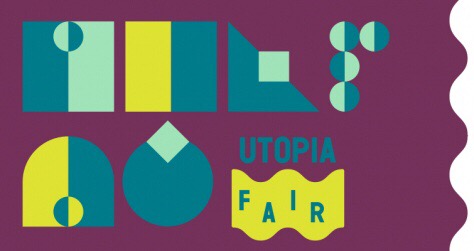Manchester Metropolitan University academics will be looking at ‘social haunting’ in communities haunted by the past.
Dr Geoff Bright, Lead Applicant, and Dr Sarah McNicol, both researchers at the University’s Education and Social Research Institute, will be running activities including ‘ghost labs’ and ‘ghost hunting’ sessions as part of the project Opening the ‘unclosed space’ – Multiplying ‘Ghost Labs’ as Intergenerational Utopian Practice.
The project is part of the Arts and Humanities Research Council (AHRC) Connected Communities Festival taking place this month at the 2016 Utopia Fair at Somerset House in London.
The project extends the scope of another recent AHRC project called Working with Social Haunting (WwSH) which included community collaboration with key partners including Rochdale’s Co-operative College and Barnsley’s Unite Community.
Opening the ‘unclosed space’ will feature artist-led activities that draw on the WwSH experience but also extend the community boundaries to reach adults and youth in contrastingly diverse and changing intergenerational communities in North Staffordshire and in parts of East London.
The ghost labs will feature the poet Andrew McMillan, the comic artist Jim Medway, radio artist Max Munday and performers from the New Vic Theatre who will use the lab as inspiration for a “replay documentary theatre” performance at the celebrated New Vic theatre in Newcastle under Lyme.
The idea of ‘social haunting’ was initially developed by Prof Avery Gordon, an American sociologist based at University of California, which argues that communities can be affected by ‘social violence’ from decades earlier in ‘barely visible’ ways that nevertheless require that ‘something is done that is different from before’ to repair the damage. Geoff has been working with this idea for a few years, arguing that it is very relevant to the situation in the rapidly and violently de-industrialised UK coalfields, and possibly in other post-conflict settings.
Dr Sarah McNicol said: “It’s not about looking at the past in a nostalgic way, but about finding ways that we can become more aware of the ghosts from the past (that are still present today) and use them in ways that help us to reimagine a different, and better, future. It’s about communities with proud industrial pasts, like North Staffordshire, Barnsley and Rochdale, exploring future possibilities that do not ignore their conflicted histories and legacies, but draw on them in creative and engaged ways.”
The AHRC Connected Communities Festival takes place from until the end of June 2016 at locations across the UK. Taking inspiration from the 500th anniversary of the publication in 1516 in Latin of Thomas More’s Utopia, the 2016 Connected Communities Research Festival has the theme of community futures and utopias. The programme aims to bring researchers and communities together to creatively explore different perspectives on what ‘utopia’ means for communities in the 21st Century.
For more information visit www.utopia500.org.uk/events.







